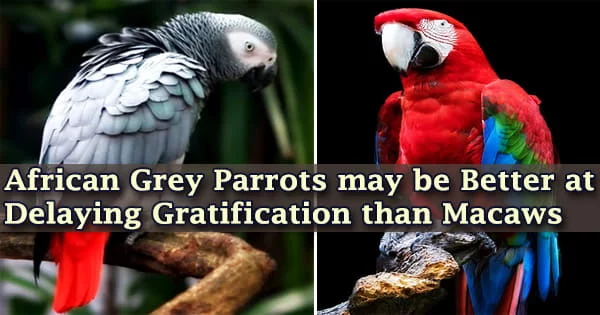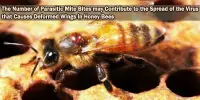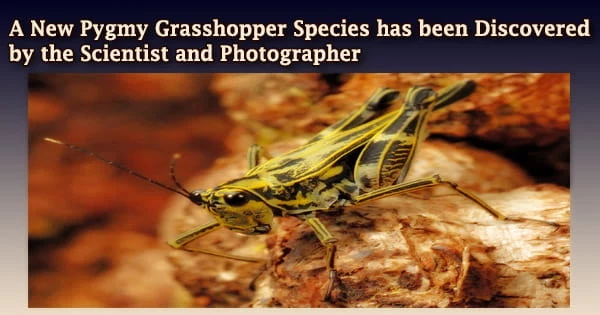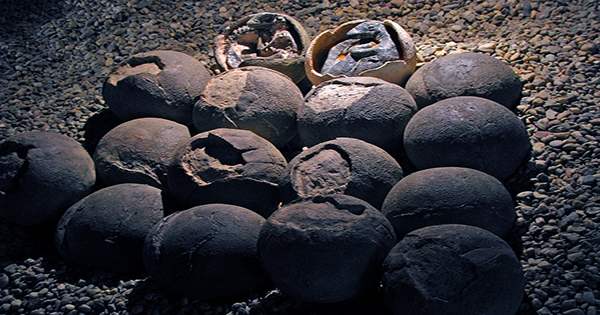According to research published in the journal Animal Cognition, African grey parrots may be better at delaying satisfaction than macaws, rejecting an immediate reward in favor of a greater one later.
At the Max-Planck study station at Loro Parque-Animal Embassy, Spain, researchers from the Max-Planck Institute for Ornithology tested how long 28 birds from four parrot species could avoid eating food they didn’t like while waiting for food they did like to become available.
African grey parrots could wait up to 29.4 seconds on average for their favored meal, compared to 20 seconds for great green macaws, 11.7 seconds for blue-headed macaws, and 8.3 seconds for blue-throated macaws, according to the researchers. The top-performing parrot, an African grey named Sensei, was able to wait for a total of 50 seconds, which was 20 seconds longer than the best performing macaw’s greatest waiting period.
Our findings suggest that the self-control abilities of closely related macaw species vary greatly between individuals and species. We hypothesize that these differences could be linked to differences in brain size or general intelligence.
Matthew Petelle
The capacity of the African grey parrot to converse and mimic sounds makes it a fascinating companion. African grey owners frequently remark that their greys speak in context and are very aware of their owners’ emotions. The African grey parrot is renowned as “The Einsteins of the Bird World” because it is not only a great talker but also for its high intelligence.
Matthew Petelle, the corresponding author of the study, said: “Our findings suggest that the self-control abilities of closely related macaw species vary greatly between individuals and species. We hypothesize that these differences could be linked to differences in brain size or general intelligence. They may also be impacted by various species’ foraging strategies or social structure, since stronger self-control may have been more strongly chosen for in birds that must spend more time seeking and extracting food or live in more complicated social contexts.”
The authors used eight great green macaws, six blue-throated macaws, six blue-headed macaws, and eight African grey parrots from the Loro Parque Fundación in Spain to assess self-control capacities amongst parrot species. Birds were fed sunflower seeds, which they disliked, via a hole in a transparent screen, and then had to wait between five and 60 seconds for a revolving contraption to feed them walnuts, which they preferred.
Macaws are clever, gregarious birds that regularly congregate in groups of 10 to 30 people. Their squawks, cries, and piercing calls reverberate over the woodland canopy. Macaws use vocalizations to communicate with one another, mark territory, and recognize one another within the flock. Some creatures are even capable of imitating human speech.
Throughout the trial, birds were able to view both the seeds and nuts through the transparent screen. The experiment terminated if the bird ate the sunflower seeds before being given the walnuts, and the bird was unable to consume the walnuts.
While waiting for their favorite meal to become available, several birds were spotted walking and manipulating things. The more time a bird spent participating in these activities, the better at waiting they become, especially when waiting for more than 10 seconds.
Depending on the species, these actions were more or less successful. Even though they participated in these activities for equal lengths of time, African greys were more successful at waiting than blue-throated and blue-headed macaws. The pacing was the behavior linked to the best results when it came to waiting for the chosen food.
Matthew Petelle said: “We propose that birds engaged in behaviors such as pacing in order to suppress the impulse to eat the food they did not prefer and better enable them to cope with waiting for the food they preferred to become available. Similar coping or diversion behaviors in other animals, such as lying down and looking away in dogs or playing with toys in chimps, have previously been linked to improved waiting performance.”
Because so little is known about how the examined species interact with their natural habitats and other parrots in the wild, the authors advise that only limited inferences can be taken regarding the causes for the observed disparities in self-control abilities between species.
Future research might look at the social structure, foraging activities, and brain sizes of parrot species like blue-headed and blue-throated macaws to see if they have an impact on self-control and patience evolution.
















